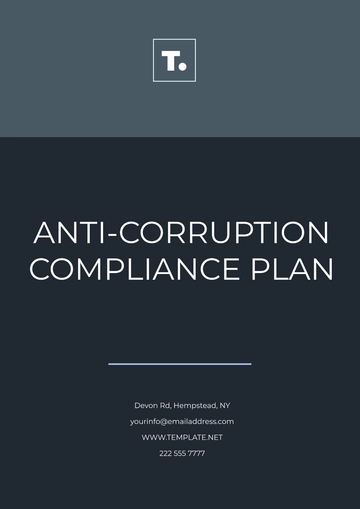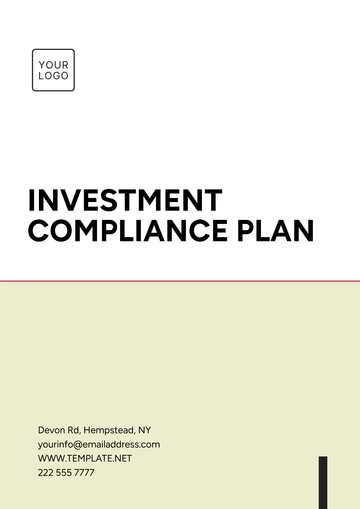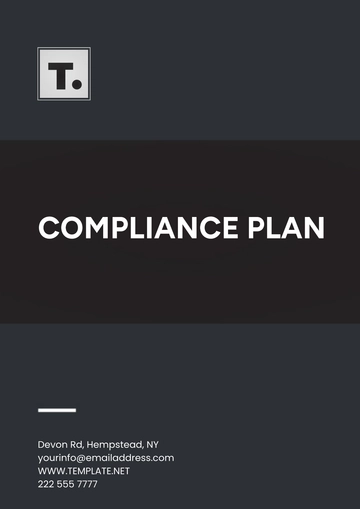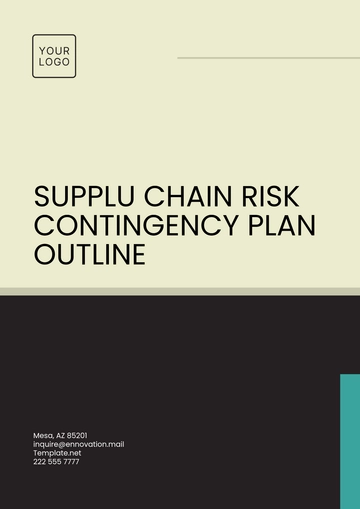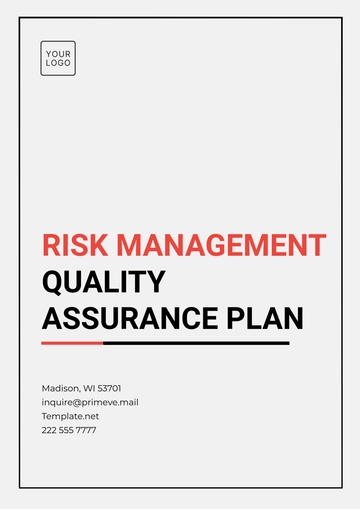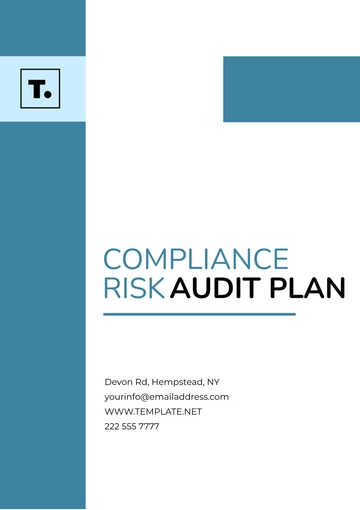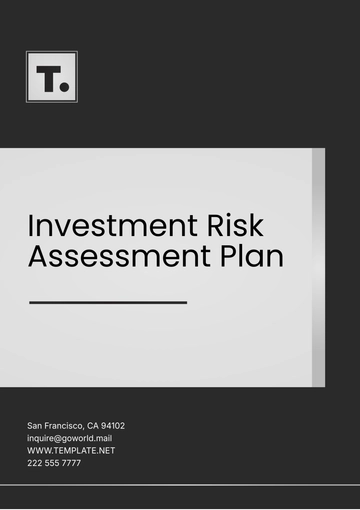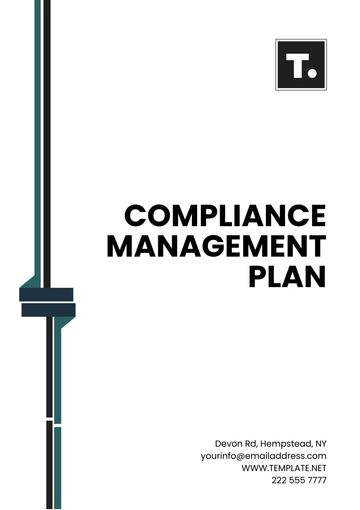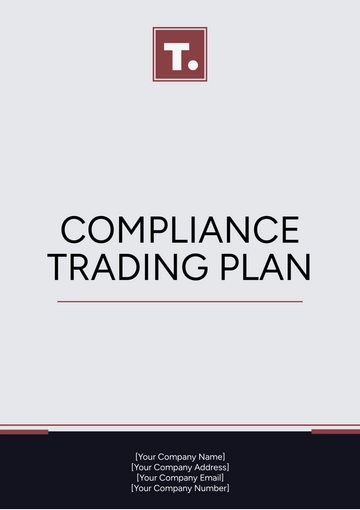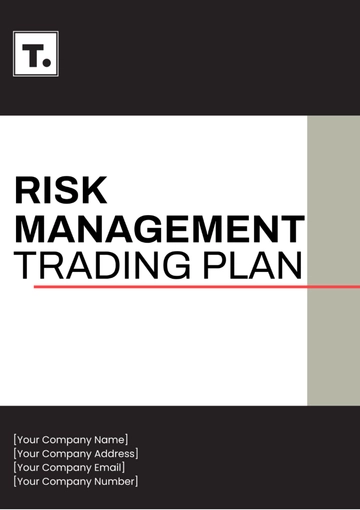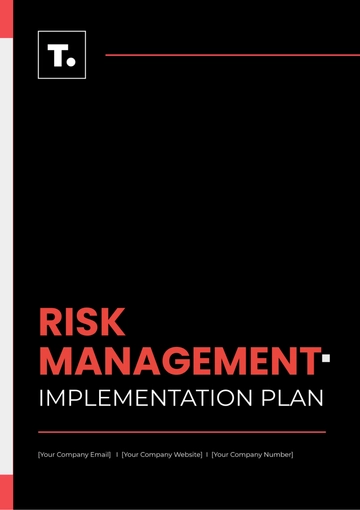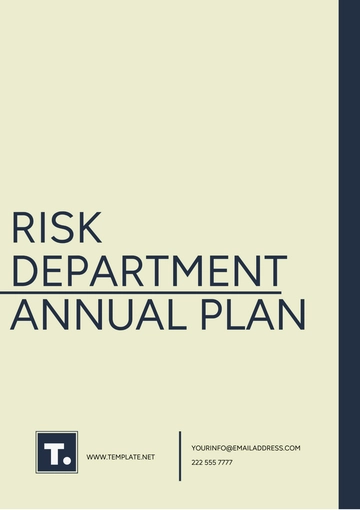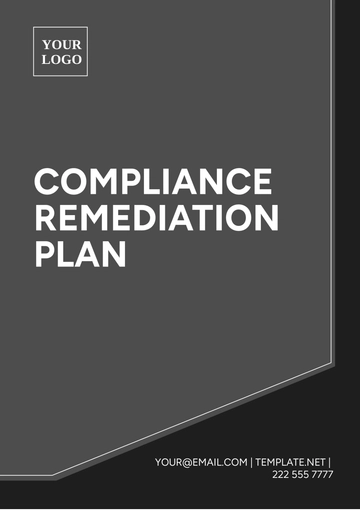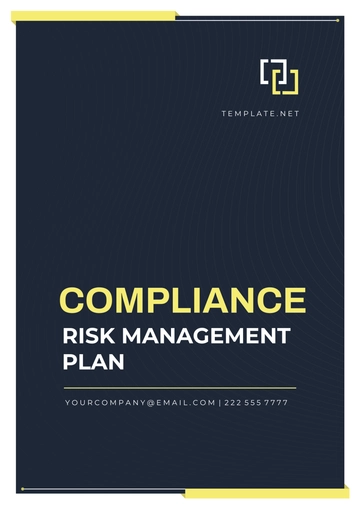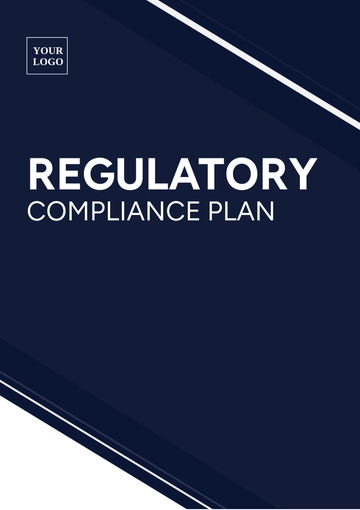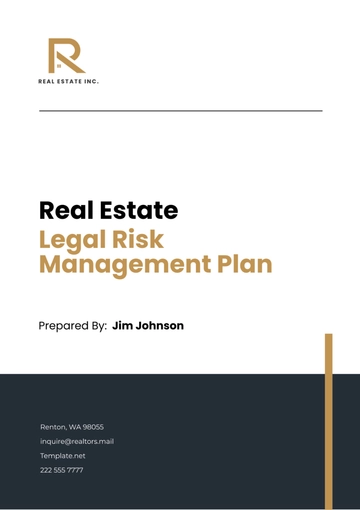Free Investment Compliance Plan
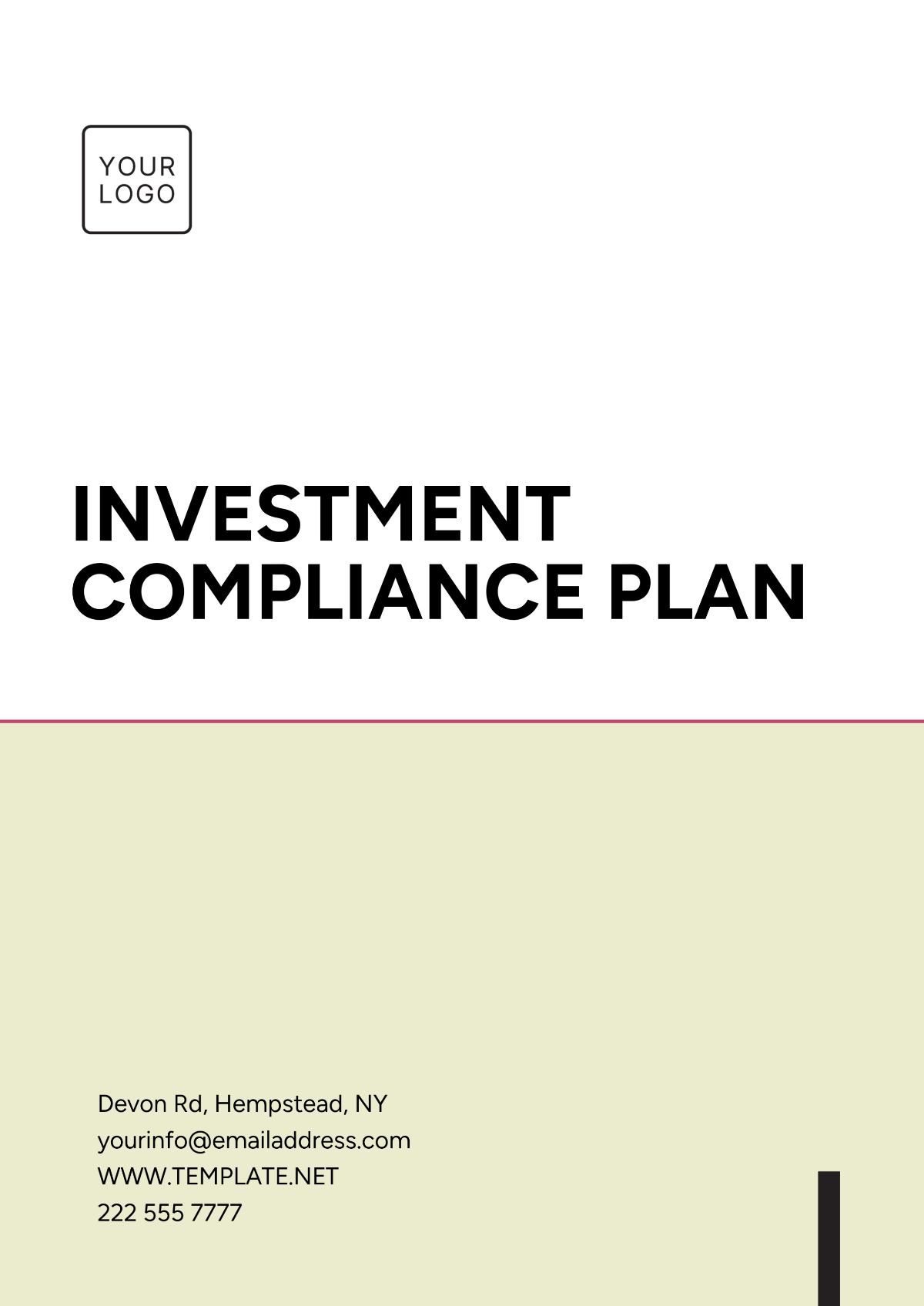
INVESTMENT COMPLIANCE PLAN
Date: [Date]
Prepared By: [Your Name]
I. Introduction
The purpose of this Investment Compliance Plan is to establish guidelines and processes for ensuring compliance with all relevant laws, regulations, and internal policies related to investment activities. This plan applies to all personnel involved in the investment process, including portfolio managers, analysts, and compliance officers.
II. Objectives
Adherence to Legal and Regulatory Standards: Ensure compliance with federal, state, and local regulations governing investments.
Risk Management: Identify and mitigate potential risks related to investment activities.
Transparency: Maintain transparency in reporting and disclosures.
Ethical Conduct: Foster ethical investment practices to safeguard the interests of stakeholders.
III. Regulatory Framework
Securities and Exchange Commission (SEC): Compliance with SEC rules and regulations.
Investment Advisors Act of 1940: Adhere to the fiduciary responsibility outlined for investment advisors.
Financial Industry Regulatory Authority (FINRA): Ensure compliance with FINRA rules, especially in the case of broker-dealers.
Anti-Money Laundering (AML) Regulations: Comply with AML requirements for investment activities.
Other Applicable Local and International Laws: Comply with any other relevant laws specific to the jurisdiction(s) where investments are made.
IV. Compliance Roles and Responsibilities
Chief Compliance Officer (CCO): The CCO is responsible for overseeing the compliance program, ensuring all regulations are followed, and managing audits and reporting.
Compliance Committee: A group consisting of senior management and legal advisors, responsible for reviewing policies, addressing compliance concerns, and approving reports.
Investment Managers and Analysts: Responsible for adhering to the compliance policies in their daily investment decisions and actions.
V. Compliance Procedures
Due Diligence: Investment opportunities must be thoroughly vetted to assess their compliance with regulations and internal policies.
Ongoing Monitoring: Continuous monitoring of investments and market conditions to ensure they remain compliant with relevant laws and regulations.
Internal Audits: Regular audits will be conducted to assess compliance with the Investment Compliance Plan and identify areas for improvement.
Reporting: Accurate and timely reports must be submitted to regulators and stakeholders to ensure transparency and maintain compliance.
Training and Education: Regular compliance training programs for all employees involved in the investment process.
VI. Risk Management
Investment Risk Assessment: Evaluate the risk associated with each investment, ensuring it aligns with the organization's risk tolerance.
Mitigation Strategies: Implement strategies to minimize identified risks, including diversification, hedging, and regular performance reviews.
VII. Ethics and Conflict of Interest
Conflict of Interest Policy: All personnel must disclose potential conflicts of interest and take appropriate actions to mitigate them.
Ethical Guidelines: Employees must adhere to ethical standards when making investment decisions, avoiding activities that could compromise the organization's integrity.
VIII. Compliance Monitoring and Reporting
Regular Reviews: Investment strategies and portfolios will be reviewed periodically to ensure compliance with applicable laws and internal policies.
Audit Reports: A quarterly report will be prepared for senior management and the compliance committee, detailing any compliance issues or risks that have been identified.
Regulatory Reporting: Any required filings with regulatory bodies (e.g., SEC, FINRA) will be made on time and in accordance with regulations.
IX. Enforcement and Penalties
Violation Reporting: Employees must report any non-compliance or violations of the Investment Compliance Plan immediately.
Disciplinary Actions: Violations of the compliance policies may result in disciplinary actions, including but not limited to warnings, suspension, or termination of employment.
Remediation: When non-compliance is identified, corrective measures will be implemented to prevent future occurrences.
X. Conclusion
The Investment Compliance Plan is a vital component in ensuring the integrity and sustainability of the organization’s investment activities. All employees must follow the guidelines and policies set forth in this plan to maintain regulatory compliance, mitigate risks, and uphold ethical standards.
- 100% Customizable, free editor
- Access 1 Million+ Templates, photo’s & graphics
- Download or share as a template
- Click and replace photos, graphics, text, backgrounds
- Resize, crop, AI write & more
- Access advanced editor
The Investment Compliance Plan Template, offered by Template.net, is a customizable, downloadable, and printable solution designed to streamline your investment planning process. This template is fully editable in our AI Editor Tool, allowing you to tailor it to your unique requirements. Ensure regulatory compliance and simplify your financial strategies with this efficient and professional tool.
You may also like
- Finance Plan
- Construction Plan
- Sales Plan
- Development Plan
- Career Plan
- Budget Plan
- HR Plan
- Education Plan
- Transition Plan
- Work Plan
- Training Plan
- Communication Plan
- Operation Plan
- Health And Safety Plan
- Strategy Plan
- Professional Development Plan
- Advertising Plan
- Risk Management Plan
- Restaurant Plan
- School Plan
- Nursing Home Patient Care Plan
- Nursing Care Plan
- Plan Event
- Startup Plan
- Social Media Plan
- Staffing Plan
- Annual Plan
- Content Plan
- Payment Plan
- Implementation Plan
- Hotel Plan
- Workout Plan
- Accounting Plan
- Campaign Plan
- Essay Plan
- 30 60 90 Day Plan
- Research Plan
- Recruitment Plan
- 90 Day Plan
- Quarterly Plan
- Emergency Plan
- 5 Year Plan
- Gym Plan
- Personal Plan
- IT and Software Plan
- Treatment Plan
- Real Estate Plan
- Law Firm Plan
- Healthcare Plan
- Improvement Plan
- Media Plan
- 5 Year Business Plan
- Learning Plan
- Marketing Campaign Plan
- Travel Agency Plan
- Cleaning Services Plan
- Interior Design Plan
- Performance Plan
- PR Plan
- Birth Plan
- Life Plan
- SEO Plan
- Disaster Recovery Plan
- Continuity Plan
- Launch Plan
- Legal Plan
- Behavior Plan
- Performance Improvement Plan
- Salon Plan
- Security Plan
- Security Management Plan
- Employee Development Plan
- Quality Plan
- Service Improvement Plan
- Growth Plan
- Incident Response Plan
- Basketball Plan
- Emergency Action Plan
- Product Launch Plan
- Spa Plan
- Employee Training Plan
- Data Analysis Plan
- Employee Action Plan
- Territory Plan
- Audit Plan
- Classroom Plan
- Activity Plan
- Parenting Plan
- Care Plan
- Project Execution Plan
- Exercise Plan
- Internship Plan
- Software Development Plan
- Continuous Improvement Plan
- Leave Plan
- 90 Day Sales Plan
- Advertising Agency Plan
- Employee Transition Plan
- Smart Action Plan
- Workplace Safety Plan
- Behavior Change Plan
- Contingency Plan
- Continuity of Operations Plan
- Health Plan
- Quality Control Plan
- Self Plan
- Sports Development Plan
- Change Management Plan
- Ecommerce Plan
- Personal Financial Plan
- Process Improvement Plan
- 30-60-90 Day Sales Plan
- Crisis Management Plan
- Engagement Plan
- Execution Plan
- Pandemic Plan
- Quality Assurance Plan
- Service Continuity Plan
- Agile Project Plan
- Fundraising Plan
- Job Transition Plan
- Asset Maintenance Plan
- Maintenance Plan
- Software Test Plan
- Staff Training and Development Plan
- 3 Year Plan
- Brand Activation Plan
- Release Plan
- Resource Plan
- Risk Mitigation Plan
- Teacher Plan
- 30 60 90 Day Plan for New Manager
- Food Safety Plan
- Food Truck Plan
- Hiring Plan
- Quality Management Plan
- Wellness Plan
- Behavior Intervention Plan
- Bonus Plan
- Investment Plan
- Maternity Leave Plan
- Pandemic Response Plan
- Succession Planning
- Coaching Plan
- Configuration Management Plan
- Remote Work Plan
- Self Care Plan
- Teaching Plan
- 100-Day Plan
- HACCP Plan
- Student Plan
- Sustainability Plan
- 30 60 90 Day Plan for Interview
- Access Plan
- Site Specific Safety Plan
